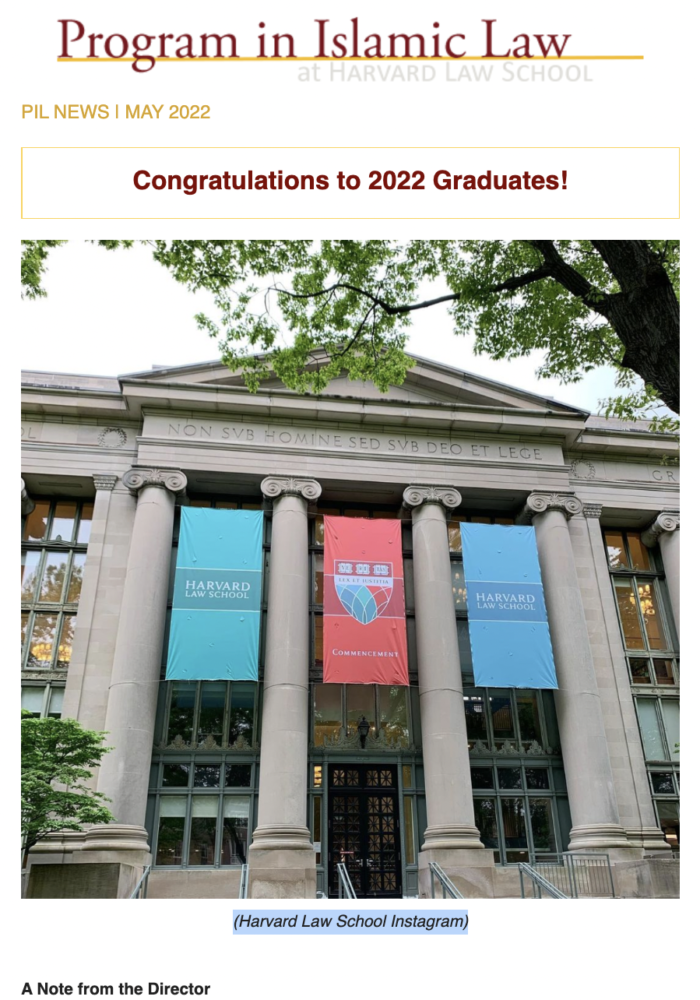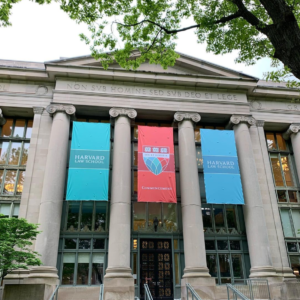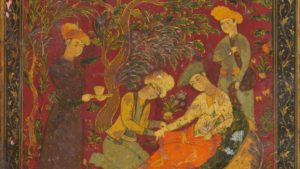
 Congratulations to 2022 Graduates! ICongratulations to the Class of 2022, as well as the returning Classes of 2020 and 2021! We at the Program in Islamic Law at Harvard Law School extend a warm congratulations on your extraordinary accomplishments during your time at Harvard. These past few years have been in no way easy ones– from going remote in 2020, to completing an entire year of online learning, to navigating our return to campus amid the ongoing pandemic. But you were able to make the most out of these times through your efforts of collective care and engagement. We commend you to reflect on these experiences alongside the knowledge and skills you’ve gained at Harvard to continue your efforts of collective care as you commence on a new path, with the hopes of making a just, positive difference in the world. We also would like to congratulate the winners of the paper and doctoral dissertation prizes in Islamic studies. Congratulations to Shayan Karbassi (JD ‘22), the recipient of the Program in Islamic Law Writing Prize for his paper “Pursuit of Supranational Authority: Constitutionalism and the Islamic Republic of Iran,” written under the supervision of Professor Vicki C. Jackson. We award this prize annually to the Harvard Law School student who has written the best paper in the field of Islamic legal studies or at the intersection of Islamic law and related fields during that current academic year. We also extend our congratulations to the winner and honorable mention of the Alwaleed Bin Talal Doctoral Dissertation Prize in Islamic Studies, Dr. Janan Delgado (Religion) and Dr. Ari Schriber (NELC), respectively. Dr. Delgado received the prize for her dissertation, “The Ties That Bind: Child Custody in Andalusian Malikism, 3rd/9th – 6th/12th c.” in which she conducts a longitudinal study of the evolution of child custody rules in the Maliki school of law and offers insights into the social history of parent-child relations, especially mother-child relations, and networks of children’s custodians in pre-modern Islamic societies, a topic that has been the subject of minimal scholarly attention. Dr. Schriber received an honorable mention for his dissertation, “The End of Shari’a? The Structural and Epistemological Evolution of the Shari’a Judge in Colonial-Era Morocco,” which addresses the long-standing question of the place of Islamic law in the 20th century nation state, specifically the process of producing sharia-based court rulings in colonial-era Morocco (1912-1956). Congratulations to you all for producing exceptional work on Islamic law during these pandemic-laden times..
Congratulations to 2022 Graduates! ICongratulations to the Class of 2022, as well as the returning Classes of 2020 and 2021! We at the Program in Islamic Law at Harvard Law School extend a warm congratulations on your extraordinary accomplishments during your time at Harvard. These past few years have been in no way easy ones– from going remote in 2020, to completing an entire year of online learning, to navigating our return to campus amid the ongoing pandemic. But you were able to make the most out of these times through your efforts of collective care and engagement. We commend you to reflect on these experiences alongside the knowledge and skills you’ve gained at Harvard to continue your efforts of collective care as you commence on a new path, with the hopes of making a just, positive difference in the world. We also would like to congratulate the winners of the paper and doctoral dissertation prizes in Islamic studies. Congratulations to Shayan Karbassi (JD ‘22), the recipient of the Program in Islamic Law Writing Prize for his paper “Pursuit of Supranational Authority: Constitutionalism and the Islamic Republic of Iran,” written under the supervision of Professor Vicki C. Jackson. We award this prize annually to the Harvard Law School student who has written the best paper in the field of Islamic legal studies or at the intersection of Islamic law and related fields during that current academic year. We also extend our congratulations to the winner and honorable mention of the Alwaleed Bin Talal Doctoral Dissertation Prize in Islamic Studies, Dr. Janan Delgado (Religion) and Dr. Ari Schriber (NELC), respectively. Dr. Delgado received the prize for her dissertation, “The Ties That Bind: Child Custody in Andalusian Malikism, 3rd/9th – 6th/12th c.” in which she conducts a longitudinal study of the evolution of child custody rules in the Maliki school of law and offers insights into the social history of parent-child relations, especially mother-child relations, and networks of children’s custodians in pre-modern Islamic societies, a topic that has been the subject of minimal scholarly attention. Dr. Schriber received an honorable mention for his dissertation, “The End of Shari’a? The Structural and Epistemological Evolution of the Shari’a Judge in Colonial-Era Morocco,” which addresses the long-standing question of the place of Islamic law in the 20th century nation state, specifically the process of producing sharia-based court rulings in colonial-era Morocco (1912-1956). Congratulations to you all for producing exceptional work on Islamic law during these pandemic-laden times..
 CONTENT: Dobbs v. Jackson Women’s Health Organization Amicus Brief One aim of SHARIAsource is to provide access to primary and secondary sources of Islamic law to support research on salient issues of Islamic law throughout time and space. We recently added an amicus brief filed before the Supreme Court concerning the case of Dobbs v. Jackson Women’s Health Organization, submitted by Muslim Advocates, a Muslim American organization, among others. The brief argues that “many schools of Islamic thought permit abortion, under certain circumstances, at any point up to 120 days from conception, or approximately 19-20 weeks gestation.” Citing various scholars of Islamic law, the brief states further that, among Muslims, “there is no universally agreed-upon moment when a fetus becomes a person.” “However,” the brief continued, “the predominant view is that a fetus acquires personhood 120 days from conception (approximately 19-20 weeks gestation).” Explore this document today!
CONTENT: Dobbs v. Jackson Women’s Health Organization Amicus Brief One aim of SHARIAsource is to provide access to primary and secondary sources of Islamic law to support research on salient issues of Islamic law throughout time and space. We recently added an amicus brief filed before the Supreme Court concerning the case of Dobbs v. Jackson Women’s Health Organization, submitted by Muslim Advocates, a Muslim American organization, among others. The brief argues that “many schools of Islamic thought permit abortion, under certain circumstances, at any point up to 120 days from conception, or approximately 19-20 weeks gestation.” Citing various scholars of Islamic law, the brief states further that, among Muslims, “there is no universally agreed-upon moment when a fetus becomes a person.” “However,” the brief continued, “the predominant view is that a fetus acquires personhood 120 days from conception (approximately 19-20 weeks gestation).” Explore this document today! CONTEXT: Abortion and Islamic Law Roundup As the right to abortion made headlines in the United States due of a leaked draft opinion in Dobbs v. Jackson Women’s Health Organization, discussions on Islamic legal perspectives on abortion rose to the surface. The tenor of the debates has meant that arguments from Islamic law occasionally appear in difficult conversations about abortion and when life begins as a matter of American constitutional law, and in related discussions internal to the Islamic tradition, about the range of opinions on abortion and life in Islamic law. Our Islamic Law Blog has curated a Resource Roundup: Abortion and Islamic Law, which is a collection of resources, meant not to resolve the debates, but to shed light on arguments in Islamic law and for consideration or comparison to religious law aspects of the debate on the controversy over abortion and the start of life among Muslims. These resources help inform the understanding of Islamic law on its own, and may be relevant to American law at the intersection of religious liberty and free exercise in the current constitutional row.
CONTEXT: Abortion and Islamic Law Roundup As the right to abortion made headlines in the United States due of a leaked draft opinion in Dobbs v. Jackson Women’s Health Organization, discussions on Islamic legal perspectives on abortion rose to the surface. The tenor of the debates has meant that arguments from Islamic law occasionally appear in difficult conversations about abortion and when life begins as a matter of American constitutional law, and in related discussions internal to the Islamic tradition, about the range of opinions on abortion and life in Islamic law. Our Islamic Law Blog has curated a Resource Roundup: Abortion and Islamic Law, which is a collection of resources, meant not to resolve the debates, but to shed light on arguments in Islamic law and for consideration or comparison to religious law aspects of the debate on the controversy over abortion and the start of life among Muslims. These resources help inform the understanding of Islamic law on its own, and may be relevant to American law at the intersection of religious liberty and free exercise in the current constitutional row.
See the full newsletter.

